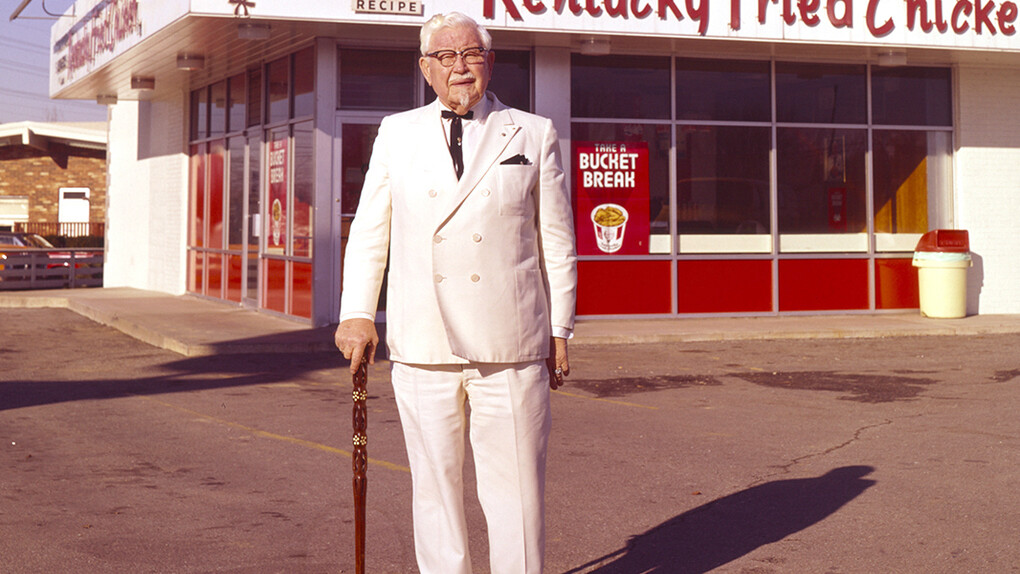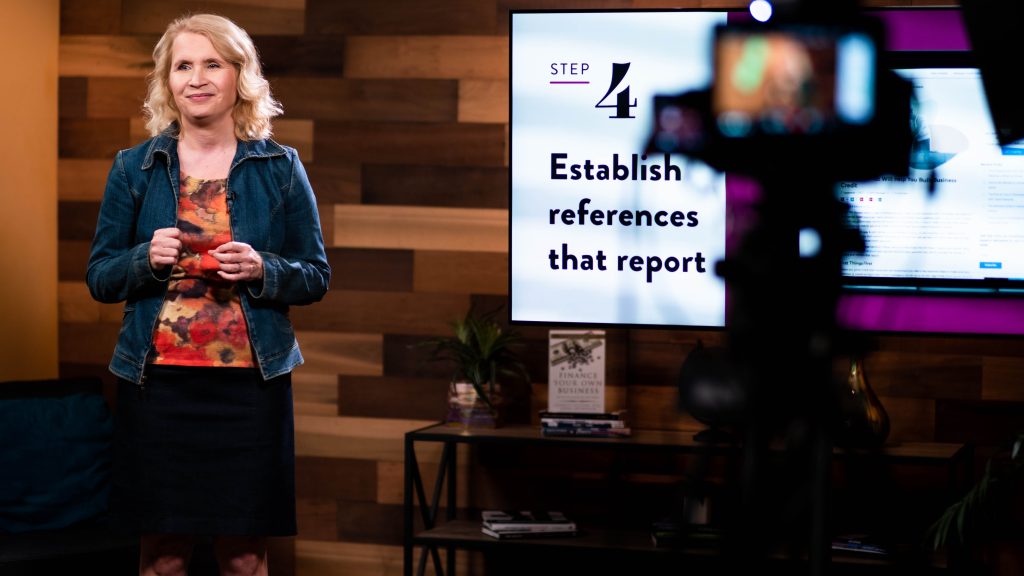The 9 Best Businesses to Start Over 60 For those with the itch, starting a business over the age of 60 is entirely doable. Age can give many advantages, including experience and wisdom. Here are 9 retirement business...
By Garit Boothe
This story originally appeared on Due

For those with the itch, starting a business over the age of 60 is entirely doable. Age can give many advantages, including experience and wisdom.
Here are 9 retirement business ideas to put that experience to good use.
1. Consulting
Consulting is a favorite business activity among retired seniors.
For starters, consulting is perfect for crafting your own hours and rates. After decades of developing expertise in a career, why not put that to good use?
Marc Wolfsfeld is a semi-retired IT consultant in West Jordan, Utah. After years of working in his business full-time, he decided to cut back operations instead of completely retiring.
Mr. Wolfsfeld explained, "I work very part-time hours, but I'm always on call for my clients. If they need software updates or there's a network problem, I'm there in a heartbeat. It gives me the opportunity to stay active and make extra income without much stress."

He isn't alone in his desire for flexible working hours. According to labor statistics by the American Economic Journal, 60% of not working Americans in their 60s or 70s would return to work if they had a more flexible schedule. Consulting offers an opportunity to do just that.
Consulting is a natural opportunity for many knowledge workers. Retired professionals in finance, law, business management, HR, marketing, and medicine all have many doors open to them in this regard.
2. Make and Sell Crafts
Retirees often take up a hobby to fill the time and quickly find that it's a great way to make extra money. The craft business is a perfect example.
The rise of Etsy has shown that handmade crafts can be big business. Many types of crafts sell well, including:
- Home decor
- Jewelry
- Art
- Toys
- Dolls
- Embroidery and quilts
Usually, the cost of the materials is quite low, which makes for a nice profit margin on the products sold. The main investment is the time, creativity, and expertise in making them. If you're already a crafty person, this can be an ideal small business.
Items can be sold at a farmer's market, flea market, festival, or small shop. If you feel comfortable selling online, you can open an Etsy shop or sell on Facebook Marketplace or Craigslist.
You can advertise your business through word of mouth at events or through social media.
You don't need a website or a graphic designer to have an effective internet presence. This is because social networks like Instagram and Pinterest enable you to draw a lot of attention to visually appealing products like arts and crafts.

Craftwork isn't limited to artsy crafts.
The same business idea applies to any type of artisanship: woodwork, metal work, clothing design, baking cakes, or anything else that can be made from home.
Robert Mauk is a retired teacher in Modesto, California, who does woodworking.
Mr. Mauk commented, "Too many of my fellow retired teachers don't remain active during retirement, and as a result, the quality of their lives often quickly declines, and I am not comfortable not being productive and creative."
"I always liked working with wood as a medium for my artwork, through craft and furniture. I worked with my Dad at a young age, and I think that sparked my interest in working with wood," he continued.
"I have stopped working on major kitchen and bathroom remodeling jobs. I now concentrate on wood sculpture, wood turning, and furniture projects so that there is no climbing in attics and down into crawl spaces."
3. Dog Walking
Dog walking is the perfect small business idea for animal lovers. Pet ownership has increased over the past decade, and it's expected to increase even more. Analysts at Morgan Stanley expect the pet industry to almost triple in size over the next decade.
That means there is a bigger demand for animal-related products and services, including dog grooming, doggy daycare, and dog walking.
Dog walking is a great way to get outside and exercise. However, if the business expands, hiring younger workers to do the legwork is also an option.
According to TimeToPet.com, dog walkers typically charge between $19 and $29 for a 30-minute dog walk. If you walk multiple dogs at the same time, the money made per hour goes up substantially. Of course, the rate varies based on the location and other factors.
As mentioned before, other related services include dog daycare and dog grooming. If you like taking care of animals, there are a few different directions you can take the business.
Keep in mind that you don't just have to do customer service with the animals, but with their owners, too.
4. Grow and Sell Plants

Gardening has long been a favorite retirement hobby. Why not grow your love of plants into extra income?
Growing plants from seeds is difficult for many people. That's why they're willing to pay for already-grown plants.
This includes flowers, bushes, shrubs, trees, garden starts, vines, potted plants, wall plants, patio plants – you name it.
If you're comfortable with strangers coming to your home, it can be a 100% home-based business. You can grow the plants in pots in your backyard, greenhouse, or patio, and sell them directly to the public. Or, if you'd rather not, lease a shop or open an online business.
It may not seem like a lucrative business idea, but a visit to your local nursery should dissuade you of that notion. Small plants commonly sell for $20-100, and your costs are limited to water, dirt, and some pots.
Many gardeners make extra cash by selling their excess produce and flowers. It's a great way to grow from hobbyist to entrepreneur.
5. Invest in Real Estate
Real estate investment is a capital-intensive business, but it can also be a steady source of cash flow.
It helps to have good credit and some capital in this industry, but you don't have to be rich to get started.
The median retirement savings for people between the ages of 55 and 64 is $107,000, which isn't nearly enough to retire. But it's usually enough to put a down payment on a modest investment property.
There are a few different types of residential investing:
- Buying, fixing, and flipping houses
- Rental investing
- Short-term rental investing
Fixing and flipping houses requires more work than renting out houses, but you also make more money in the short term.
Short-term rental investing can be done through sites like Airbnb and Vrbo. In effect, you can run a bed and breakfast from any house that you own. The great thing about this is that you can get started with the house that you're already living in by renting out rooms or the basement.
Many retirees consider downsizing after their children grow up and leave the nest. Instead of downsizing, renting out the extra space as a short-term or long-term rental may be a quick way to start producing income.
6. Open a Franchise
Franchises have been popular with small business owners for a long time. There are good reasons for this.
There's no way around it: starting a business is hard. In addition to the work and capital you need to put up, you need to know what you are doing. That's where franchising comes in.
In exchange for paying an upfront franchise fee and recurring royalties, you get step-by-step guidance on how to start a business. The best franchises have well-known brands and national marketing that bring in customers automatically.
If you buy into a franchise, you don't have to come up with a business plan or worry about supply chain logistics. The best franchises have employee training resources on everything from customer support to handling finances.
One of the most famous franchise restaurant chains in the United States was started by an older entrepreneur: none other than Colonel Sanders.

Harlin Sanders started the Kentucky Fried Chicken franchise when he was in his 60s and worked in some facets of the restaurant business until his death at age 90.
Though he churned through or failed at many different jobs and careers in his long life, he realized that he had an amazing fried chicken recipe worth sharing with the world.
His restaurants and his accompanying franchise business made him quite wealthy by the end of his life. Today, KFC is a brand with a worldwide presence.
Buying into a well-established franchise probably won't lead to worldwide success, but it can be a steady business venture for the right person.
Beyond restaurants, franchises exist in many different industries, including:
- Convenience stores like 7-11
- Hardware stores like Ace Hardware
- Hotels like Marriott International
- Fitness gyms like Planet Fitness
Franchises aren't cheap. In addition to paying hefty startup fees, there are usually capital costs such as buying equipment, hiring employees, and leasing space.
Franchise startup costs average $150,000, but much of that cost can be covered through a business loan or financing of some sort.
The day-to-day operations of most well-run franchises can be done by a manager. Once the business is up and running, the business owner usually doesn't need to put in many hours to keep it going.
7. Offer Move Management Services
RetiredBrains surveyed their readers about what businesses they had started in retirement, and some variation of "Move Manager" came up more than once.
This is a service that involves helping people move. The physical lifting work is still done by a moving company, but the move manager organizes the process.
According to these service providers, downsizing seniors and overwhelmed young families need help managing the details of the moving process, and they're willing to pay for it.
This often involves cleaning out garages, packing, labeling, organizing, and planning the various pieces of the move. Part of this could involve senior relocation services, which help seniors find a trustworthy and affordable retirement home.
Many houses are filled with old possessions and unused things. A big part of the move management service involves selling, throwing away, or donating unwanted items.
Once the client is in their new home, unpacking and organizing everything requires work as well.
8. Academic Tutoring
Tutoring is a great business for people that love children and teens. Retired school teachers find that tutoring is a great way to bring in income during retirement, without the stresses of classroom management and school administration.
According to Tutors.com, average prices for tutoring vary quite a bit. They can range from $25 to $80 per hour, depending on the location, type of tutoring, and other factors.
Traditionally, private tutors typically visit students in their homes or other places of their parents' choosing. However, online tutoring has become more popular in recent years and tutoring centers are another option.
Test preparation for the SAT and other standardized tests is a particular area of high demand, which can command higher rates for tutors well versed in it.
9. Get Paid to Write
Writing is a paid activity that can be done well at any age. There are a variety of ways to get paid as a writer.
Business ideas for writing include:
- Freelance work for publications and companies
- Self-publishing a book
- Blogging
- Ghostwriting on behalf of others
- Technical writing
- Copywriting
Gerri Detweiler of Sarasota, Florida, worked for many years as a writer, speaker, and educator in the credit industry. She decided to transition from full-time, in-house work to freelance writing and consulting.
Mrs. Detweiler has published books and is also working on an online course.

Mrs. Detweiler shared, "I recently became self-employed again after more than a decade in full-time roles. While I've enjoyed working with colleagues in those jobs, I appreciate the flexibility of working for myself. Freelancing has allowed me to travel and work around the US as well as internationally.
"I'm heading to Greece in December 2022 for an extended period of time and this work allows me to do that without worrying too much about office hours and time zone differences.
"Writing, in particular, allows for a great deal of flexibility. It also allows me to delve into topics that are interesting but that I otherwise might not have the time to study. For example, this year I wrote about crypto credit cards, and I enjoyed researching that space.
"I'm also interested in remote work and am starting to write about that as well. As long as I remain curious I'll continue to write, even if it's just for myself!"
Conclusion
The average human lifespan is longer than ever before. Rather than retire early, many Baby Boomers are choosing a middle path of part-time work and part-time play.
Entrepreneurship isn't easy, but it has its perks. A flexible, fulfilling business may be the perfect vehicle for such a lifestyle.
The post The 9 Best Businesses to Start Over 60 appeared first on Due.









